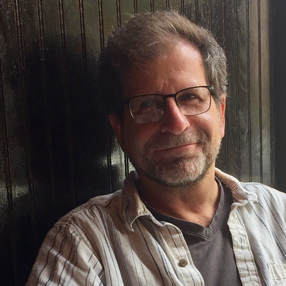GORDON OYER
About Gordon Oyer
Hermersbergerhof, Palatinate, Germany - Oyer family residence 1776-77

Reared in the Anabaptist Mennonite tradition, Gordon Oyer learned early to question priorities that drive Western society. His readings in nonviolence introduced him to writings of Thomas Merton, which in turn led him to appreciate Merton’s contemplative reflections and social critique.
Beyond these influences, his parents’ love of history encouraged him to seek insights into faith and culture through historical inquiry. His professional career in the University of Illinois System administrative offices offered the occasion to complete his MA in history at its Urbana-Champaign campus. That career also exposed him to tensions and contradictions embedded within modern structures that make it difficult to put faith-based social ideals above organizational priorities. Together, these experiences combined to inform his interest in the 1964 Merton-led retreat of peacemakers and their consultation about spiritual roots to challenge America’s embrace of violence and related maladies.
Oyer grew up on a small dairy and grain farm in central Illinois, and received his BS from the University of Illinois at Urbana-Champaign. Parallel to his professional career, he participated in denominational history projects and leadership. This included serving on various regional Mennonite historical committees, assisting with aspects of Illinois Mennonite Heritage Center programming, and serving on the board of the Central District Conference of Mennonite Church USA, including a two-year term as conference president. He served eight years as editor of Illinois Mennonite Heritage Quarterly and has written various articles on Mennonite history and on the social thought of Thomas Merton. Oyer currently lives in Louisville, Kentucky, where he continues his research on Thomas Merton's thought and writings.
His work on both Pursuing the Spiritual Roots of Protest and Signs of Hope has heightened his desire to continue the conversations about transformative action that Merton began over five decades ago at his Gethsemani Abbey retreat and through his massive body of correspondence.
Beyond these influences, his parents’ love of history encouraged him to seek insights into faith and culture through historical inquiry. His professional career in the University of Illinois System administrative offices offered the occasion to complete his MA in history at its Urbana-Champaign campus. That career also exposed him to tensions and contradictions embedded within modern structures that make it difficult to put faith-based social ideals above organizational priorities. Together, these experiences combined to inform his interest in the 1964 Merton-led retreat of peacemakers and their consultation about spiritual roots to challenge America’s embrace of violence and related maladies.
Oyer grew up on a small dairy and grain farm in central Illinois, and received his BS from the University of Illinois at Urbana-Champaign. Parallel to his professional career, he participated in denominational history projects and leadership. This included serving on various regional Mennonite historical committees, assisting with aspects of Illinois Mennonite Heritage Center programming, and serving on the board of the Central District Conference of Mennonite Church USA, including a two-year term as conference president. He served eight years as editor of Illinois Mennonite Heritage Quarterly and has written various articles on Mennonite history and on the social thought of Thomas Merton. Oyer currently lives in Louisville, Kentucky, where he continues his research on Thomas Merton's thought and writings.
His work on both Pursuing the Spiritual Roots of Protest and Signs of Hope has heightened his desire to continue the conversations about transformative action that Merton began over five decades ago at his Gethsemani Abbey retreat and through his massive body of correspondence.
Proudly powered by Weebly